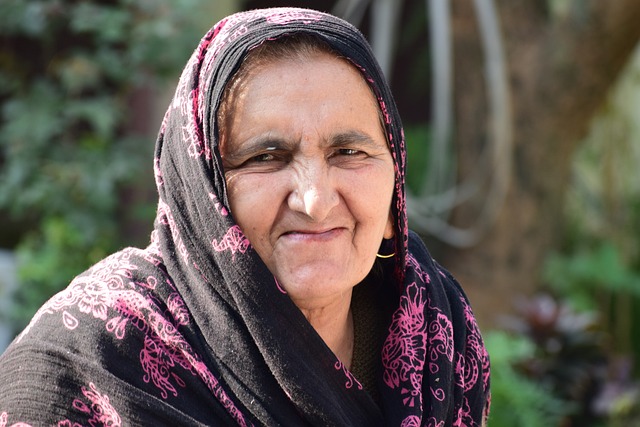Oregon's family custody laws prioritize children's best interests in divorce or separation scenarios, including grandparent custody cases. Grandparents seeking legal custody must demonstrate a strong bond and capability to provide stability and love. Key factors considered include interactions with the child, household stability, parent involvement, financial situation, and history of domestic violence or substance abuse. Navigating this process requires understanding state laws, consulting legal experts, compiling relevant documentation, and fostering open communication. Organizations like the Oregon Law Center for Family Relations offer guidance, while legal aid organizations provide pro bono services. Support groups further assist grandparents emotionally and practically during custody battles.
“In Oregon, family custody laws prioritize the best interests of children. While parents have primary custody, grandparents may seek legal custody under specific circumstances. This comprehensive guide explores Oregon’s grandparent custody rights, outlining the legal framework and essential considerations. From understanding the state’s family custody laws to navigating the court process, we provide valuable insights for grandparents aiming to secure custodial rights. Discover the factors courts weigh, common challenges, and available resources to empower grandparents in their quest for legal custody.”
- Understanding Oregon's Family Custody Laws: An Overview
- Grandparent Custody Rights: What They Entail
- Factors Considered in Grandparent Legal Custody Cases
- Navigating the Process: Steps to Seek Custody as a Grandfather or Grandmother
- Common Challenges and Their Solutions in Oregon Grandparent Custody
- Resources and Support for Grandparents Involved in Custody Battles
Understanding Oregon's Family Custody Laws: An Overview

In Oregon, the family custody laws are designed to ensure the best interests of children involved in divorce or separation proceedings. When it comes to grandparent custody, understanding these laws is crucial for grandparents seeking legal custody rights. The state provides guidance on various factors courts consider when determining child custody, including stability, love, and affection, as well as each parent’s ability to meet the child’s physical and emotional needs.
Oregon grandparent custody cases are evaluated on a case-by-case basis, focusing on what arrangement is in the child’s best interest. Custody rights for grandparents can be established if they can demonstrate a significant relationship with the child and their ability to provide a stable and loving home. The legal custody of grandparents is possible through various means, such as requesting joint or sole custody after a parent’s death, adoption, or other circumstances that terminate parental rights.
Grandparent Custody Rights: What They Entail

In Oregon, grandparent custody rights are recognized and protected under state law, offering a framework for involving grandparents in their grandchildren’s lives. These rights, as outlined by the Oregon Family Custody Laws, provide a legal basis for grandparents to seek custody or visitation with their grandchildren. Understanding these custody guidelines is essential for grandparents looking to navigate the legal system and secure meaningful time with their family.
The Oregon grandparent custody laws consider the best interests of the child as the primary factor in any custody decision. Grandparents who wish to pursue legal custody or visitation must demonstrate a substantial relationship with the child and their ability to provide a stable, loving environment. This may involve presenting evidence of regular involvement in the child’s life, financial stability, and a suitable home environment. The guidance for grandparents seeking custody is comprehensive, addressing various aspects to ensure the well-being and continuity of the family unit.
Factors Considered in Grandparent Legal Custody Cases

In Oregon, grandparent legal custody cases are governed by a comprehensive set of guidelines that consider various factors to ensure the best interests of the child are at the forefront. When navigating Oregon grandparent custody, understanding these key elements is paramount. The court looks at the relationship between the grandparents and the child, evaluating the quality and frequency of interactions. This includes assessing the ability of the grandparents to provide a stable and nurturing environment, which can be especially significant if the parents are facing challenges or are unable to care for the child themselves.
Additionally, Oregon custody laws for grandparents take into account the parent’s willingness to allow grandparental involvement and the potential impact on the child’s well-being. The court may also consider the stability of the grandparent’s household, their financial situation, and any history of domestic violence or substance abuse. These factors collectively help in determining the appropriate level of custody rights for grandparents while prioritizing the child’s security and happiness.
Navigating the Process: Steps to Seek Custody as a Grandfather or Grandmother

Navigating the process of seeking custody as a grandparent in Oregon involves several key steps. First, it’s crucial to understand the state’s custody laws and guidelines, which emphasize the best interests of the child. Grandparents should review the legal framework around custody rights for grandparents in Oregon, focusing on provisions specific to their situation. This includes consulting with a family law attorney who can provide tailored guidance based on the unique circumstances surrounding the custody dispute.
Next, they must gather essential documentation and evidence supporting their fitness as caregivers. This could include proof of stable employment, suitable living arrangements, and a history of active involvement in the child’s life. Additionally, grandparent seeking custody should initiate open communication with the parents and other family members to strengthen their case. By following these steps, Oregon grandparents can navigate the process effectively, aiming for what’s best for their grandchildren while respecting the legal framework.
Common Challenges and Their Solutions in Oregon Grandparent Custody

In Oregon, navigating grandparent custody can be a complex process due to various challenges. One common hurdle is establishing legal custody rights, as parents often have priority. To overcome this, grandparents should seek legal counsel to understand their state-mandated rights and the necessary steps to gain custody, focusing on demonstrating their ability to provide a stable and loving environment. Many find it beneficial to document their involvement in the grandchild’s life, including caregiving and significant contributions to their upbringing.
Another challenge lies in proving their fitness as caregivers. Oregon family custody laws emphasize the best interest of the child, so grandparents should prepare comprehensive evidence showcasing their capacity to parent effectively. This might include educational credentials, stable employment, suitable living arrangements, and references from other family members or professionals who can vouch for their abilities. Understanding the state’s custody guidance is crucial, enabling grandparents to present a compelling case while adhering to legal requirements.
Resources and Support for Grandparents Involved in Custody Battles

Grandparents involved in custody battles in Oregon have access to various resources and support systems designed to help them navigate complex legal terrain. Understanding custody laws in Oregon is crucial for grandparents seeking to protect their rights and ensure the best interests of their grandchildren. Organizations like the Oregon Law Center for Family Relations offer guidance, education, and advocacy specifically tailored to grandparent custody cases. These groups provide valuable insights into the state’s family custody laws, helping grandparents understand their legal options and obligations.
Additionally, legal aid organizations and pro bono services can offer assistance to grandparents who may not afford private legal representation. These resources ensure that grandparents have a fair chance in court by providing information on how to file for legal custody, what documents are required, and how to present a compelling case. Support groups and community networks also play a significant role in offering emotional support and practical advice to grandparents going through these challenges, fostering a sense of community among those facing similar situations.














